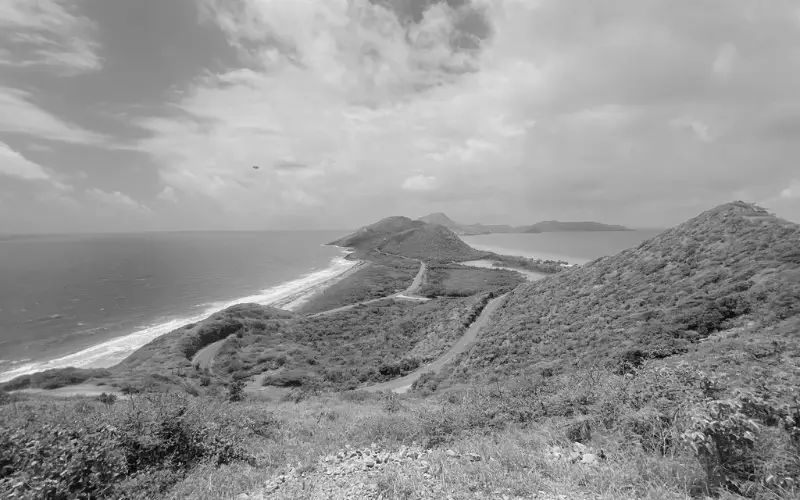Periods of global instability often reshape how individuals think about the future.
As disruption accelerates, traditional financial models struggle to keep pace. When policies shift overnight and legal systems become unpredictable, wealth holders are often left exposed. One tool that helps make sense of this volatility is the World Uncertainty Index (WUI). Though technical in design, the index sends a clear message that the global landscape is harder to navigate than before.
In response, individuals are turning toward structure rather than reacting impulsively. Families and individuals are turning to long-term legal frameworks that reduce the need for reactive decision-making. Offshore trusts are playing a growing role in this shift, especially in jurisdictions that continue to offer clarity, consistency, and distance from political fluctuations.
What Is The World Uncertainty Index
Before adjusting wealth strategies, it helps to understand the tool used to measure instability. The World Uncertainty Index (WUI) is not based on headlines or opinion. It is a data-driven indicator designed to track how often uncertainty appears in structured country-level reporting. Its role is not to forecast panic but to highlight when economic, political, and policy environments are becoming difficult to navigate.
Scope And Coverage
The WUI spans more than 140 countries, providing both regional and global visibility. It allows for comparisons across different geographies and historical periods, making it possible to identify whether uncertainty is rising in isolated pockets or taking hold across entire regions. This broader lens gives families and advisors a way to look beyond domestic noise and consider patterns unfolding at the global level.
Purpose And Use Cases
The index is used by economists, central banks, and financial analysts to assess planning conditions. A high WUI reading doesn’t forecast collapse, but it does signal deteriorating confidence or growing unpredictability in core institutions. For private clients, this matters. The same pressures that influence central banks or corporate investment strategies can also lead to abrupt tax policy changes, regulatory shifts, or enforcement inconsistencies that affect personal wealth structures.
Data Sources And Methodology
The World Uncertainty Index is built using a straightforward methodology. It analyzes the Economist Intelligence Unit’s country reports, counting how frequently the word uncertainty appears. The count is then adjusted for document length and standardized for comparison across countries and timeframes. This removes the subjectivity found in surveys or ratings. Instead of relying on opinion, it reflects language used in formal economic reporting, giving the index a neutral and consistent foundation.
Timeline And Historical Context
The World Uncertainty Index was developed by IMF economists in 2018, but its dataset goes back to 1996. This long view makes it possible to place recent readings in historical context. For instance, the spikes seen during the 2008 financial crisis, the early 2020 pandemic period, and post-2022 trade and inflation instability show just how much global sentiment can shift in short periods.
OECD Report Shows Economic Slowdown And Risk Increase
While the World Uncertainty Index offers a way to quantify instability, institutions like the OECD provide direct analysis of how that uncertainty plays out in policy and performance. In June 2025, the OECD released a report highlighting a clear economic slowdown across key global markets. Growth projections for major economies like the United States, Canada, and China have been revised downward, citing rising tariffs, fiscal pressure, and stalled investment.
One of the more concerning insights is the return of broad trade restrictions, including tariff increases that have pushed U.S. import taxes to levels not seen since the 1930s. These policy shifts disrupt expectations and increase the cost of doing business, creating ripple effects for private wealth holders whose planning once relied on more predictable frameworks.
The OECD report also noted rising inflation pressures and inconsistent responses from governments. Combined with WUI trends, the picture becomes clear: the rules are shifting, and predictability is in short supply.
Economic Impact Of Global Uncertainty
Instability within government systems tends to shape private decisions more than public headlines suggest. When systems shift quickly, the window to respond narrows.
Decline In Growth And Investment
Uncertainty disrupts planning before it disrupts outcomes. When governments delay decisions, reverse policies, or adopt inconsistent frameworks, both public and private capital retreat. Infrastructure projects are postponed. Business expansion is placed on hold. For families managing significant assets, this creates hesitation around deploying capital, particularly in regions where policy direction has become unreliable.
Supply Chain And Trade Disruptions
One of the clearest signs of global tension is the breakdown of trade flows. Trade routes are redirected, import restrictions arise, and delays in sourcing materials or transporting assets become increasingly common. These disruptions affect corporations, but they also create complications for private clients by delaying construction projects, limiting access to high-value goods, and interfering with the operation of cross-border businesses.
Fiscal Policy Shocks And Instability
Governments facing economic stress often resort to rapid fiscal interventions. These can include wealth taxes, capital controls, asset freezes, or aggressive enforcement actions that target private holdings. Such measures are rarely announced with warning and are difficult to challenge once in place. For individuals with high visibility or politically exposed assets, this introduces a layer of risk that can’t be diversified away.
Increased Exposure For Private Capital
Private capital depends on predictability. In an environment where legal systems shift, central banks adjust course abruptly, and enforcement practices vary by region, the importance of liquidity, mobility, and pre-structured protections becomes more pronounced. Without resilient cross-border frameworks in place, even passive wealth can become vulnerable to domestic pressures or short-term political agendas.
Risks To Wealth Protection In Uncertain Times
Uncertainty reshapes the environments where wealth is held, accessed, and transferred. When political or economic conditions become unstable, exposure can escalate quickly.
Political And Legal Threats To Assets
Changes in leadership, shifts in policy direction, or targeted enforcement campaigns can expose assets to new risks. Real estate, operating businesses, and even cash balances can be affected when governments revisit contracts, revise ownership rules, or politicize judicial processes. In some cases, established legal norms lose relevance as courts become tools of expediency rather than stability. This kind of risk is difficult to predict and often impossible to reverse once triggered.
Sudden Changes In Tax Policy Or Enforcement
Governments under fiscal strain frequently turn to revenue-generation tools that create new burdens on private capital. This may involve unannounced audits, the reclassification of assets, or the introduction of emergency tax measures. For individuals with cross-border ties or complex holding structures, the risk increases when local tax authorities act without clear guidance or coordination. Delays in adapting to new requirements can result in financial penalties or loss of confidentiality.
Currency Controls And Access Restrictions
Capital movement is one of the first areas to be restricted during domestic instability. Central banks and regulators may impose foreign exchange controls, limit withdrawals, or block international transfers. These restrictions are often introduced without advance notice and can remain in place indefinitely. For internationally active families, this creates pressure to restructure banking arrangements and secure reserve liquidity in more predictable jurisdictions.
Structural Weaknesses In Local Planning Tools
Local structures like wills and nominee companies may work under stable conditions, but they often fail in volatile regulatory environments
In contrast, international frameworks such as offshore trusts, private trust companies, or multijurisdictional foundations are often better positioned to absorb disruption, adapt to legal change, and preserve long-term objectives.
Offshore Trusts Offer Strategic Control
Offshore trusts are established legal arrangements used to manage and preserve wealth across jurisdictions. They are designed to hold assets according to clearly defined terms and provide structure that remains consistent despite external change. In periods of instability, offshore trusts support long-term decisions by removing reliance on any single legal or political system.
Separation Of Assets From Local Risk
When a trust is formed under a foreign legal framework, assets are no longer governed by the laws of the settlor’s country of residence. In Nevis, for example, the trust legislation limits recognition of foreign court orders and restricts creditor access without specific conditions being met. This structure reduces exposure to local legal actions or political shifts that could affect how assets are treated or transferred.
Protection From Political And Legal Pressure
In some regions, court systems respond unevenly to changing policy or public pressure. Offshore trusts apply a different set of legal rules, which can remain consistent even when external conditions fluctuate. This approach allows the terms of the trust to be followed as written, regardless of developments elsewhere. The trust jurisdiction determines how the assets are administered, and this provides a reliable basis for planning.
Succession Tools For Long-Term Planning
Trusts allow for the distribution of assets over time, without relying on domestic inheritance systems that may change or conflict across countries. This is especially relevant for families with beneficiaries in different jurisdictions. Each beneficiary may face a unique tax or legal environment, and the trust provides a single structure to manage distributions in a way that reflects the settlor’s long-term priorities.
Confidentiality In A Compliant Framework
In jurisdictions like Nevis, trusts are not publicly registered and do not disclose the identities of settlors or beneficiaries. This allows for confidential administration of wealth while maintaining alignment with international reporting frameworks such as FATCA and CRS. The trust can be structured to meet legal obligations without exposing private family information beyond what is required by law.
Ready To Respond To Uncertainty With Long-Term Structure?
Periods of uncertainty test the strength of any structure. The World Uncertainty Index reflects growing instability that is increasingly difficult to ignore. Offshore trusts offer a reliable legal framework to support long-term planning and reduce exposure to external pressures. At Trust Nevis, we assist in establishing international trusts built to remain effective across jurisdictions and over time. If you’re considering a more resilient approach, we’re available to discuss the options.
Frequently Asked Questions
What Is The World Uncertainty Index?
The World Uncertainty Index is a global indicator that tracks how often the word “uncertainty” appears in economic and political reports prepared by the Economist Intelligence Unit for over 140 countries.
How Is The World Uncertainty Index Calculated?
The index is calculated by measuring the frequency of the word “uncertainty” in each country report, adjusting for total word count, and standardizing the data to allow comparison across time and geography.
What Causes Global Uncertainty To Rise?
Global uncertainty increases when events disrupt the ability of governments, markets, and institutions to function predictably. This includes armed conflict, sudden regulatory shifts, leadership changes, supply chain disruptions, and global health emergencies.
What Are Examples Of Global Uncertainty Events?
A few significant global uncertainty events include Brexit, which altered trade and legal arrangements across Europe; the U.S.–China trade war, which disrupted investment flows; the COVID-19 pandemic, which triggered policy volatility worldwide; the 2022 energy crisis, which exposed weaknesses in national energy planning; and the spread of new trade barriers across North America and Asia.
How Does Global Uncertainty Affect Private Wealth Holders?
Private wealth holders are affected by global uncertainty through increased risk of asset freezes, unexpected tax measures, reduced access to capital, and legal environments that no longer support long-term planning.
Why Do Investors Use Offshore Trusts During Uncertain Periods?
Investors use offshore trusts to move assets into jurisdictions with clearer legal protections, stable regulatory frameworks, and greater resilience to political or economic interference.
Is Using An Offshore Trust Legal During Global Instability?
Using an offshore trust is legal when the structure is properly formed under the laws of the selected jurisdiction and complies with international reporting obligations such as FATCA and CRS.
What Makes Nevis A Preferred Jurisdiction In Uncertain Times?
Nevis is preferred for its trust legislation that limits recognition of foreign judgments, protects against forced heirship claims, and offers legal and administrative stability without taxing foreign income.













